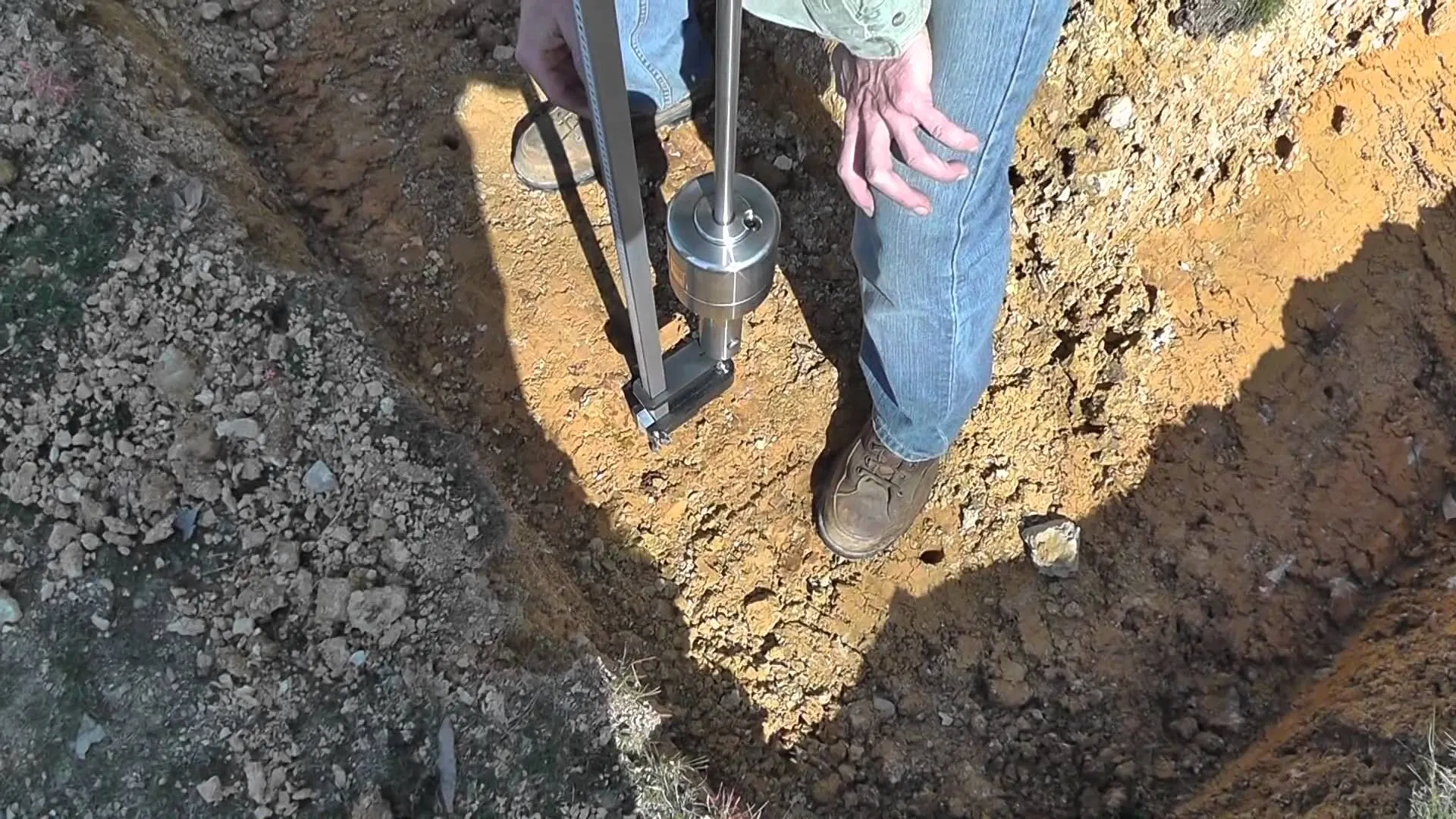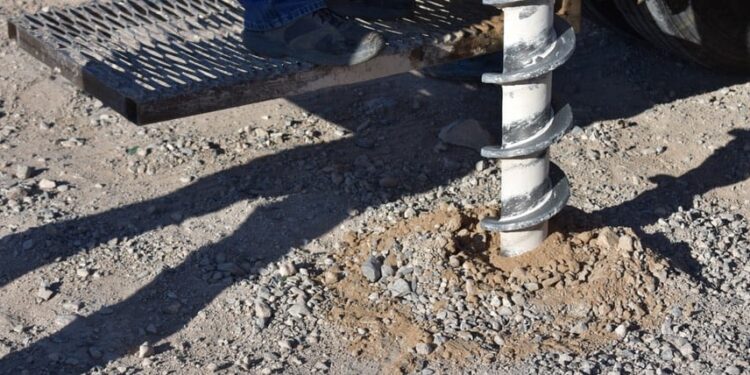Building a home is a dream come true for many people.
However, most of these people underestimate a few things before getting started with the construction, like – soil testing. It helps you determine whether the chosen site is ideal for your dream home construction or not. Without soil testing, you may face issues and challenges on the construction site, warns Granite Foundation Repair.
So, let’s take an in-depth look at why soil testing is significant for your home construction. But before that, take a glance at what soil testing is.
Table of Contents
- Soil Testing: What Is It?
- Six Reasons Why Soil Testing Is Important For Your Home Construction
-
-
- Helps you Determine the Ideal Construction Materials
- Helps you Determine the Type of Foundation Required for Construction
- Protects you from Resting Foundation at Inadequate Depth or Poor Soil
- Protects you from Resting Foundation on Reclaimed Soil
- Helps you Determine Corrosive Soil
- Helps to Determine the Possibility of Soil Liquefaction During Earthquake
-
- Final Thoughts
Soil Testing: What Is It?
Soil testing is an evaluation done to measure the type and strength of land where you want to build your dream home. For your dream home construction, soil testing from top providers like Smolders Geotechnical should be your first step.
As you know, the strength of soil and overall soil profile varies from one place to another. Although some soil can support you to build skyscrapers, some may not even hold a hut. With unstable soil beneath your home, your building’s foundation will experience cracks and may even fall.
Before getting started with building construction, it’s crucial to check the ground or soil’s bearing capacity. This is especially important when you plan on constructing the building on sand, clay or alluvial soils. The leaning tower of Pisa is one good example of what happens when the soil is not strong and durable enough to support a heavily loaded building.
Six Reasons Why Soil Testing Is Important For Your Home Construction
Soil testing is essential for everyone who wants to build their dream home. You must know that the most significant part of your home is the one you cannot see – the foundations under the ground. The larger your home, the more crucial this is.
With soil testing, you’ll be able to get all the information required to determine the ideal foundation type for your home. Moreover, it also helps you determine the ideal type of material to build your home.
So, let’s know more about the reasons why soil testing is crucial. Keep reading the below-mentioned points.
1. Helps you Determine the Ideal Construction Materials
The outcomes of soil testing in constructing your home, including the mineral and chemical composition and the soil’s character concerning water content, determine the ideal type of material for your construction project.
For instance, you’ll need sulphur-resistant cement to construct your building if the soil contains high sulphur content. Also, you’ll use corrosion resistant TMT bars to build your home if the soil contains high moisture content, making the area prone to corrosion.
Moreover, soil testing helps you do concrete quality, which is essential while deciding on materials like concrete.

2. Helps you Determine the Type of Foundation Required for Construction
Soil testing by an excavating constructor is essential as it helps you know the soil’s engineering and physical properties, like bearing capacity, density permissibility, mineral presence, and moisture content. These properties play a crucial role in determining the type of foundation you’ll need for construction. Primarily, the foundation must be strong enough to transmit the building weight into the soil underneath.
Significantly, the foundation is often referred to as the building’s backbone. A slight defect can lead to a collapse or failure of the building. The foundation of the building plays a crucial role in assisting and transferring the weight load from the building to the soil ground without causing any collateral damage to the building.
The type of foundation decides the strength of the building, the roofing type, and the number of storeys it can permit. And the soil testing report determines the type of foundation you’ll need for your building. The entire weight of your home can be supported by a strong ground layer like a rock.
However, you won’t find rocks everywhere. In some locations where the soil layer consists of clay or sand, some build-up and reinforcement will be needed for ensuring the soil strength is like a rock. To strengthen the weak soil layer or segmentation and impart the load, you can use various types of foundations.
The various types of foundation that you can use for constructing your building are:
- Combined/isolated column footing
- Piling
- Strip/raft foundation
- Rubble foundation
3. Protects you from Resting Foundation at Inadequate Depth or Poor Soil
If the foundation rests at inadequate soil depth or poor soil, it will result in settlement of the soil and movement of the building. This unwanted movement will lead to a differential or uniform settlement of your building. Regardless of the type of settlement, it will result in the foundation failure.
Thus, it will become a significant reason for any total or partial building collapse. Here, soil testing lets you know about the soil quality and depth beforehand to protect you from some hazardous outcomes.
4. Protects you from Resting Foundation on Reclaimed Soil
First, you must know what reclaimed soil is. It’s the new landfills that develop from the lake beds, sea, wet soil of riverbeds, or even debris. So, if you build your home foundation on reclaimed soil, you’ll end up facing a building collapse in the future.
This landfill type consists of silt and clay particles, which eventually results in excess consolidation settlement and the soil segmentation turns unstable for the home building.
5. Helps you Determine Corrosive Soil
The subgrade of soil consists of several chemicals. Various chemicals in the soil, like chloride and sulphur, react with the concrete. This reaction leads to the worsening of the concrete foundation.
Over time, it will impact your building strength and may also result in your building collapse or failure. Here, soil testing reports warn you about such corrosive soil beforehand and helps you avoid any construction over such a site.
6. Helps to Determine the Possibility of Soil Liquefaction During Earthquake
Soil liquefaction is when the saturated soil deposit gets deprived of its stiffness and strength due to the sudden shaking movement of the soil segmentation, especially during an earthquake. Thus, your foundation may be at the risk of collapse during an earthquake.
The soil testing report will let you know about such possibilities before you start any construction.
Final Thoughts
To construct your dream home, you must remember that soil testing is a crucial factor. If you want to avoid the risk and exposure of unwanted fatal dangers, ensure to perform soil testing before taking any step towards your building construction.






